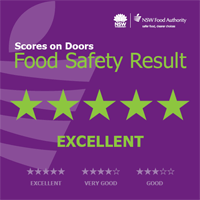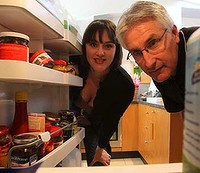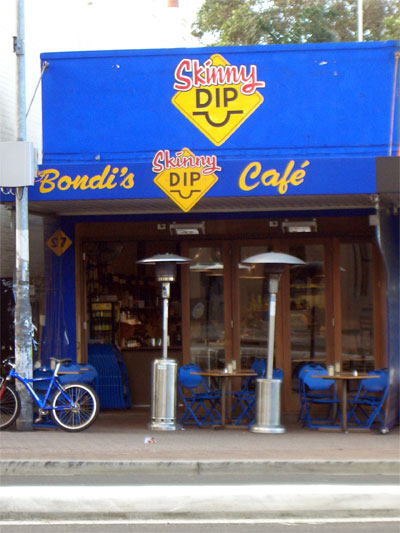A bad batch of eggs is all it took for home cook Mercedes Zambrano to be hit with a legal bill of more than $20,000 and a place on the NSW Food Authority’s name-and-shame list for a case of mass food poisoning.
The Zambrano family had been regulars at weekly South American community gatherings at the Kensington Bowling Club for Rincon Cubano, a Latin-American music, food and dance event. ”We’re like the Partridge family,” Jefferson Zambrano, a Latin-American percussionist, said.
 When the regular caterer left, his mother, Mrs Zambrano, was invited to provide the food.
When the regular caterer left, his mother, Mrs Zambrano, was invited to provide the food.
But after more than 50 people fell ill with salmonella poisoning at a barbecue at the club in November 2009, Mrs Zambrano, 56, was fined $9600 and ordered to pay $11,000 in costs.
An investigation by the NSW Food Authority determined the presence of salmonella in various foods served at the function, the most likely cause of contamination being a raw whole-egg mayonnaise used in a salad.
Mrs Zambrano pleaded guilty to three offences including selling food that is unsafe, failing to comply with the Food Standards Code and a failure to notify the NSW Food Authority of her food business.
She was classified as a business because she charged money for the food. Mr Zambrano said this was unfair, as his mother was simply catering for a community event and had charged money to cover her costs rather than to make a profit.
In hearing the matter in the Local Court, Magistrate Gregory Hart acknowledged the woman had contributed significantly to her community through fund-raising, and volunteer work, and she never intended to cause harm; however, he stated the need to provide a deterrence factor in imposing his findings.
"It is important to alert [people] conducting food businesses, including part-time food businesses associated with community activities, that the requirements of the Food Act 2003 and the standards set by the Food Standards Code must be complied with," Magistrate Hart said.
The NSW Primary Industries Minister, Katrina Hodgkinson, said the case was a reminder to other community caterers of the importance of the Food Standards Code.
"This highlights the important work of the NSW Food Authority in establishing NSW regulations and food safety programs, including cultivating good food-handling practices and sharing information on food safety”
.jpg) safe and hygienic kitchen is washing your hands.
safe and hygienic kitchen is washing your hands.
 well restaurants, cafés or other outlets have performed during their food safety inspection."
well restaurants, cafés or other outlets have performed during their food safety inspection." dishes, stove top and fridge. ”It is amazing how quickly people forget an officer is in the kitchen.”
dishes, stove top and fridge. ”It is amazing how quickly people forget an officer is in the kitchen.” When the regular caterer left, his mother, Mrs Zambrano, was invited to provide the food.
When the regular caterer left, his mother, Mrs Zambrano, was invited to provide the food..png) rather than expect us to hitch up the stagecoach and find the reading glasses.
rather than expect us to hitch up the stagecoach and find the reading glasses. temperature (that’s model Miranda Kerr, right, shopping at the store).
temperature (that’s model Miranda Kerr, right, shopping at the store). The Australians were slow to adapt restaurant inspection disclosure
The Australians were slow to adapt restaurant inspection disclosure The milk was recalled on December 23 when 10 people, including a newborn baby, fell ill with thyroid problems in New South Wales, the Australian state where Sydney is located.
The milk was recalled on December 23 when 10 people, including a newborn baby, fell ill with thyroid problems in New South Wales, the Australian state where Sydney is located..jpg) "Ignorance is no excuse. The NSW government does not tolerate businesses that breach food safety and put consumers at risk. Our priority is ensuring this product is off the shelves and out of coffee shops and cafes so consumers can dine with confidence."
"Ignorance is no excuse. The NSW government does not tolerate businesses that breach food safety and put consumers at risk. Our priority is ensuring this product is off the shelves and out of coffee shops and cafes so consumers can dine with confidence."